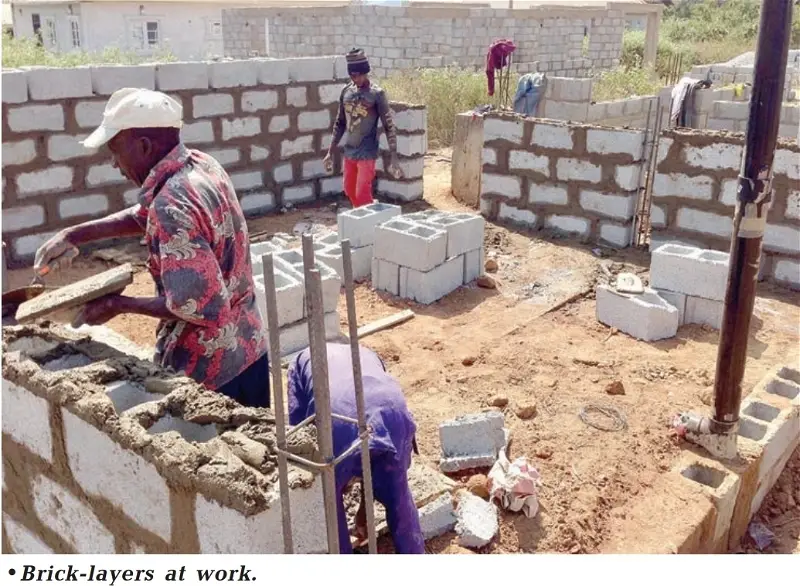By Elizabeth Adegbesan
Competition among artisans is gradually giving way to collaboration.
That is the irony of the current situation, where the effects of the cash crunch and removal of fuel subsidy have brought the economy down.
Before now, Artisans were known to scramble and struggle for clients and, in most cases, fight to have the highest number.
But now, a dearth of clients has beaten them to shape. They now understand that the greatest strength towards survival is collaboration.
Economy&Lifestyle has just discovered that in order to make sure hunger does not do more damage, artisans are now putting hands together to do jobs and share proceeds, no matter how small, so that everyone can put food on the table.
According to Mr. Mutiu Adewale, an electrician: “I don’t go to shop everyday. Services are dwindling. I now work with a group of electricians who call me for jobs on new sites. I also contact them when I have such a contract. That is what most artisans now do to survive. Sometimes we go away for three to four days.
“They have really helped me because very few people require my services now. I do put calls through to my customers to remind them that I am still available to do any job, no matter how little it might seem.
“A friend of mine who is an electronic gadget repairer has complained bitterly to me that he hardly receives jobs from customers now. He said that those customers that brought faulty gadgets for repairs have refused to pay him the balance on jobs done, and those who made part payments have not come to collect the repaired gadgets.
“This shows the effects of the already worsening situation of our economy on customers, which is reflecting on the income of artisans.”
The same goes for Mr. Godonu Mautin, a mechanic, who repairs four to six vehicles in a week but hardly, get to repair two since the removal of fuel subsidy.
“I have never experienced a bad economic situation like the one we are in now. Nigerians are really suffering. Artisans are the worst hit. Those artisans who are less hit are the commercial drivers and food stuff sellers.
“They still have patronage because people will eat and move around for their daily bread.
“Before I could repair at least five to six vehicles in a week but now I hardly have two. Whenever I call most of my customers who are car owners, they tell me they have parked their cars at home and are using commercial mode of transportation. They were citing the high cost of fuel and low income as reasons.
“I am not the only one in this dilemma; most of my colleagues are in it too. What we advised ourselves on is to share jobs. If I have two to three cars for repair, I call a colleague to handle one while I handle the other two. He does the same for me too. If it is one car with so many repairs, we share the work.
“We also share the profit in a 40 to 60 ratio. Whoever brings the job takes the largest share.”
Mr. Sunday Iyayi, a bricklayer, said he now shares jobs with his colleagues.
“I don’t know what to say because if I say I am not tired of this country, it is a lie. We artisans are struggling to survive. Before people saw us as the one in vogue because we earn money daily but now the reverse is the case. We are only living on past glory.
“Today, there is no profit in this job. When you charge a day job for N7, 000, you pay the agent and pay your boys working under you, how much is remaining.
“The faster you are in this job the better. Now, I call most of my colleagues that are experts and we do the job together so that we can handle other upcoming contracts if there is any.
“They also contact me when they have a job. This has been our means of survival. The high cost of living has made our income to go down. Many people have dumped their sites due to their inability to continue with construction because building materials are on the high side. Some now sell the half built structure and use the money for upkeep or business to survive.
“Both the rich and the poor are reducing their consumption and spending patterns. Nobody is left out from this dilemma.”
The continuous rise in the prices of goods and services as well as the challenging economic conditions have compelled households to reduce consumption expenditure by 4.07 per cent in 2022 as against an increase of 25.6 per cent in 2021.
According to the National Bureau of Statistics Gross Domestic Product (GDP) Report (Expenditure and Income approach) for the fourth quarter of 2022, Q4’22, “On an annual basis, real household consumption expenditure in 2022 grew by -4.07 per cent compared to 25.6 per cent in 2021.”
However, household consumption expenditure in nominal terms rose year-on-year (YoY) by 19.9 per cent to N130 billion in 2022 from N108.5 billion in 2021.








